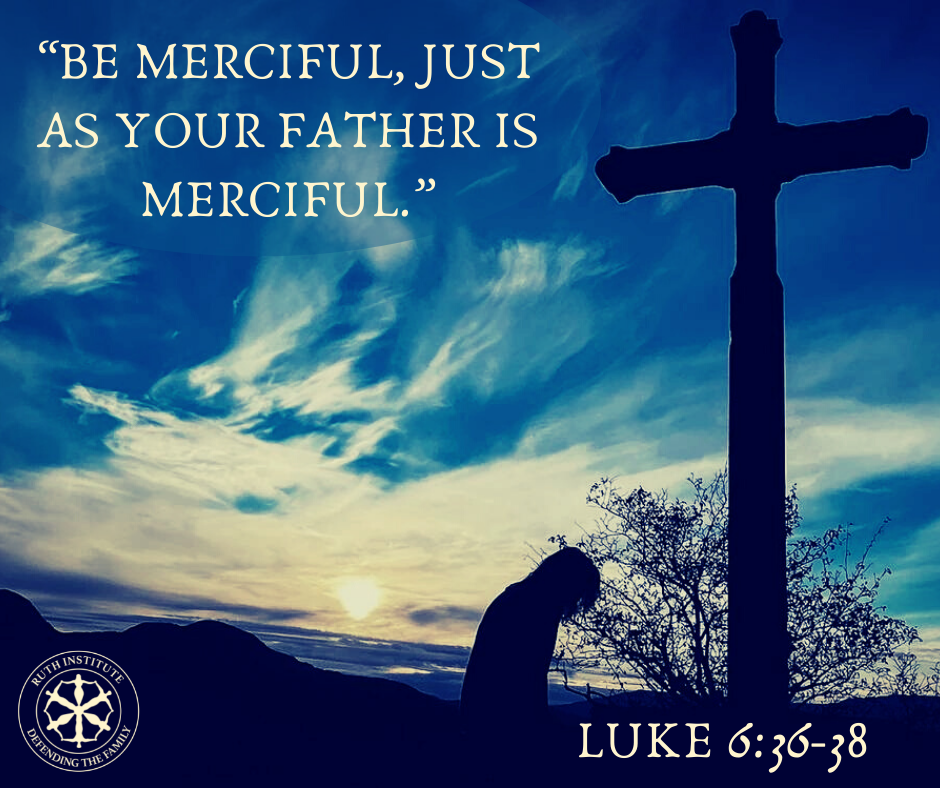I received this question from a reader: what happens when you extend forgiveness to your abuser, but he/she refuses to accept responsibility for their actions and does not positively receive our forgiveness?
Before answering this question, I want to try to clear up some of the confusion that often arises regarding forgiveness. Forgiveness is a decision we make after we have been hurt by another. It requires us to acknowledge the offense, accept that it happened, let go of resentment and the desire for revenge, and essentially release the offender from what we believe they owe us. Most people agree that forgiveness can be very difficult especially in cases where the offending party has severely hurt us. Forgiveness can seem like an insurmountable barrier.
First of all, there is a distinction between forgiveness and reconciliation. One person can forgive another whereas two people are required in order for reconciliation to take place. In the case of reconciliation, trust would need to be restored which is not always possible. The relationship would also need to be repaired in some way which is once again not always possible (or advisable).

Next, forgiveness does not mean that the offending party should be released from punishment. It does not require that we open the door to that person playing an active role in our lives. We don’t have to, for example, trust them ever again or have contact with them. As a matter of fact, in many cases especially when it comes to abusers, trusting them or having contact with them might not be a good idea. You still need to be on your guard and protect yourself from possible future abuse.
You do not have to give someone access to you just because you have forgiven them.
Third, the ability to forgive (truly difficult in some situations) does not typically happen overnight. It happens when we come to a place where we no longer wish suffering on that other person. Forgiveness cannot be forced, and no one should ever be forced into forgiving their perpetrator. This wouldn’t be true forgiveness anyway. Anyone who has been violated needs to be supported and needs time to work through the trauma. Throwing the expectation of forgiveness at a victim only adds more of a burden to the crosses they are already carrying. An individual typically needs to slowly unburden themselves before they can truly forgive. As mentioned earlier, it’s a decision and takes time.
To give you a real-life example, when I was 18 years old, I faced my rapist (a Catholic priest) in court. I forgave him in my victim impact statement. I also forgave him publicly to the news media. Once the adrenaline from the trial had died down, it became clear that I wasn’t truly ready to forgive. I had said what I thought I was “supposed” to say but eventually all of the previously suppressed emotions came to the surface. I realized that I was still carrying around a tremendous amount of hate for my rapist. It wasn’t until a few years later that I was truly able to forgive him in my heart. He has never publicly admitted his guilt, apologized, or shown any remorse. This reality took time for me to accept but the peace and freedom that came through forgiveness was incredible.
By forgiving, we let go of the hatred, resentment, etc. and recognize that the other person is also a beloved child of God. Forgiveness is an act of the will that allows us to relieve them of the debts they “owe” us. In the case of sexual abuse, the offender has clearly wronged another and taken something away. When we forgive, we accept that the abuser will never be able to give back what was taken. Essentially, what’s done is done and nothing can remove that. All you can do is move forward.
That being said, forgiving someone does not preclude us from pursuing restitution in other ways (such as pressing charges against an abuser). Forgiveness does not mean that what the perpetrator did was OK.
It also does not mean that we forget. There is a lot of danger in that old expression “forgive and forget.” In the case of a large offense, forgetting is impossible and not advisable. Forgetting could actually put us in danger in the future.

When we forgive someone, it is for our benefit too. It allows us to free up space in our hearts for joy and peace. I recall what it felt like living with hate. It was constantly in the forefront of my mind. Little else mattered and I could think of little else. It was all-consuming. I realized that the hate was only hurting me. It was bringing me down and turning me into a very bitter person. I also realized that the hate and vengeful thoughts were doing absolutely nothing to change my rapist or the past. With forgiveness came freedom from the chains of hatred. Those chains can be difficult to free ourselves from!
Finally, keep in mind that even when you have reached a point of forgiveness, you will not necessarily be relieved of all the pain. Negative emotions such as sadness and anger will still remain.
So, what happens when you forgive someone who has hurt you, but they still don’t acknowledge what they have done?
Regardless of whether or not the person knows you have forgiven them, there’s nothing more you can do. You can pray for them and for their repentance but that’s about it. It is now totally in God’s hands. You need to focus on you – working through the pain that remains.
Just because you have forgiven someone doesn’t mean that they don’t have to make things right with God. After all, we don’t have the ability to extend limitless mercy like God does nor do we have the ability to take away someone’s deserved punishment. The person who hurt you still needs to acknowledge what they did. He or she still needs to repent. You have nothing to do with that. By praying for them, you are asking the Holy Spirit to work in them and change them. Responding to those interior promptings is, of course, entirely their decision.
One such example is the story of the Catholic saint, St. Maria Goretti. She forgave her attacker as she lay dying. By the grace of God, the perpetrator did take responsibility for his actions while in prison. He chose to accept God’s mercy, repented, and changed his life. Unfortunately, this isn’t always the case with forgiveness. However, anything is possible when we put seemingly impossible situations into God’s hands.

Forgiving takes time, patience, courage, and the realization that it doesn’t often happen in a single moment. It is a decision that you make over and over again especially when past hurts and thoughts of retaliation come to the surface again.
This can be especially difficult to accept especially when you have been suffered so much already. Arriving at a place of being able to forgive is hard enough! Even if they refuse to accept the mercy you have extended, you can still love them as a brother or sister in Christ and you can still forgive. Once you have shown mercy, you have done your part.
Just remember that extending forgiveness to an abuser does not take away from the fact that they still have to face God. It does not replace the need for His justice. He is, after all, the ultimate judge. Extending forgiveness, especially when it has not been asked for or “earned” by another, requires a lot of grace. Freedom is found through forgiveness. When you forgive, you open yourself up to finding joy and peace again. When you reach the point of being able to forgive, Christ will have more room to transform and restore you. Freedom is found through forgiveness, and forgiveness is truly a gift that keeps on giving.



